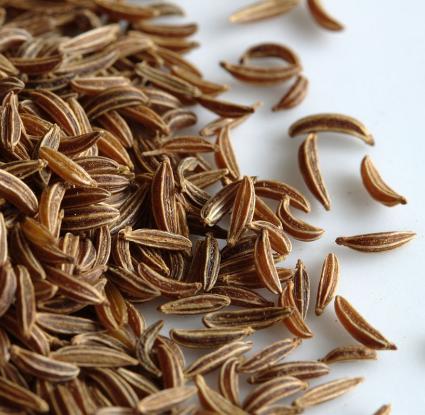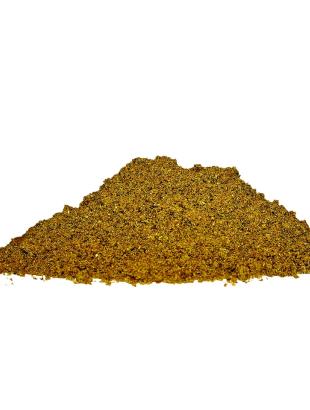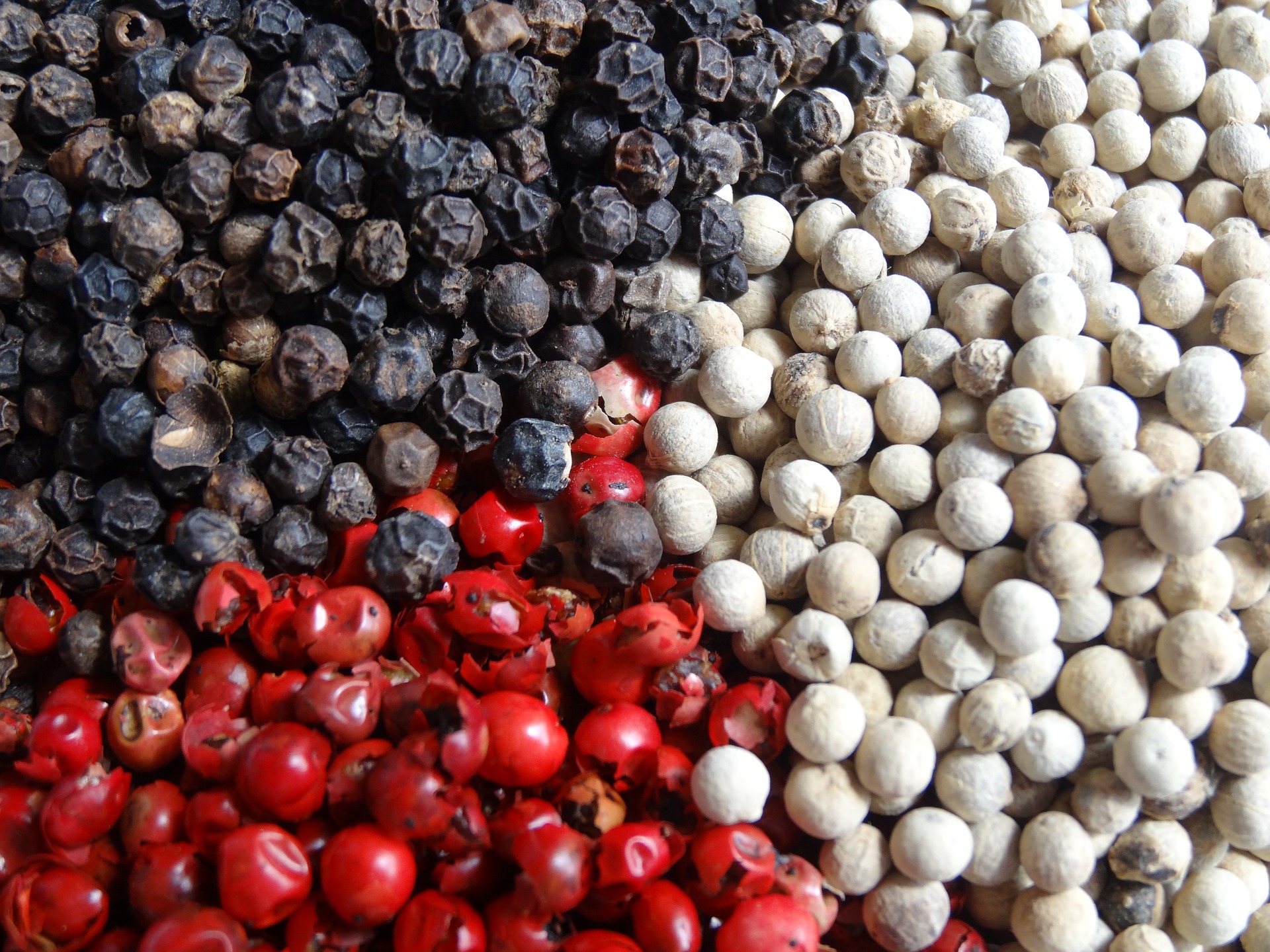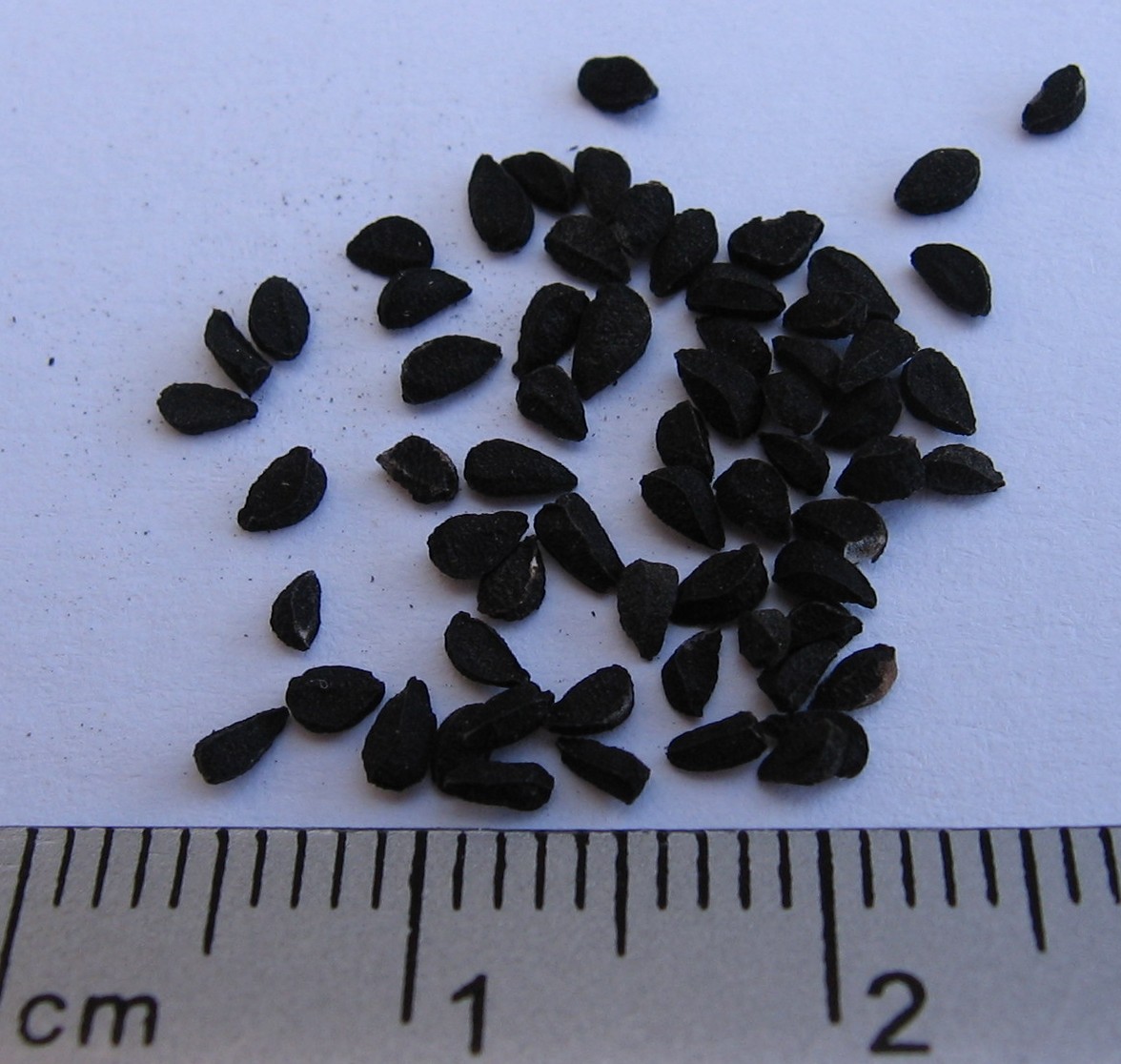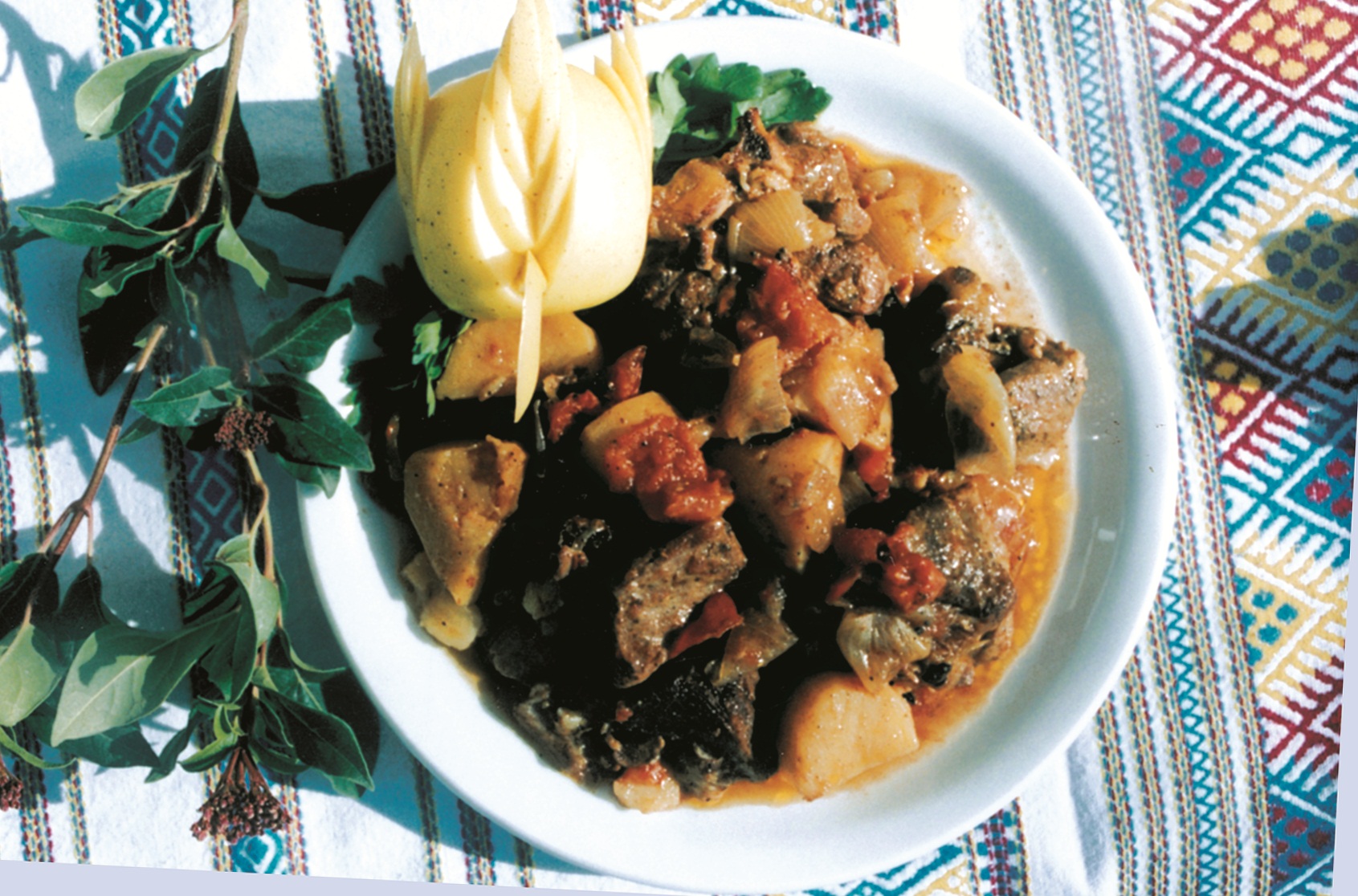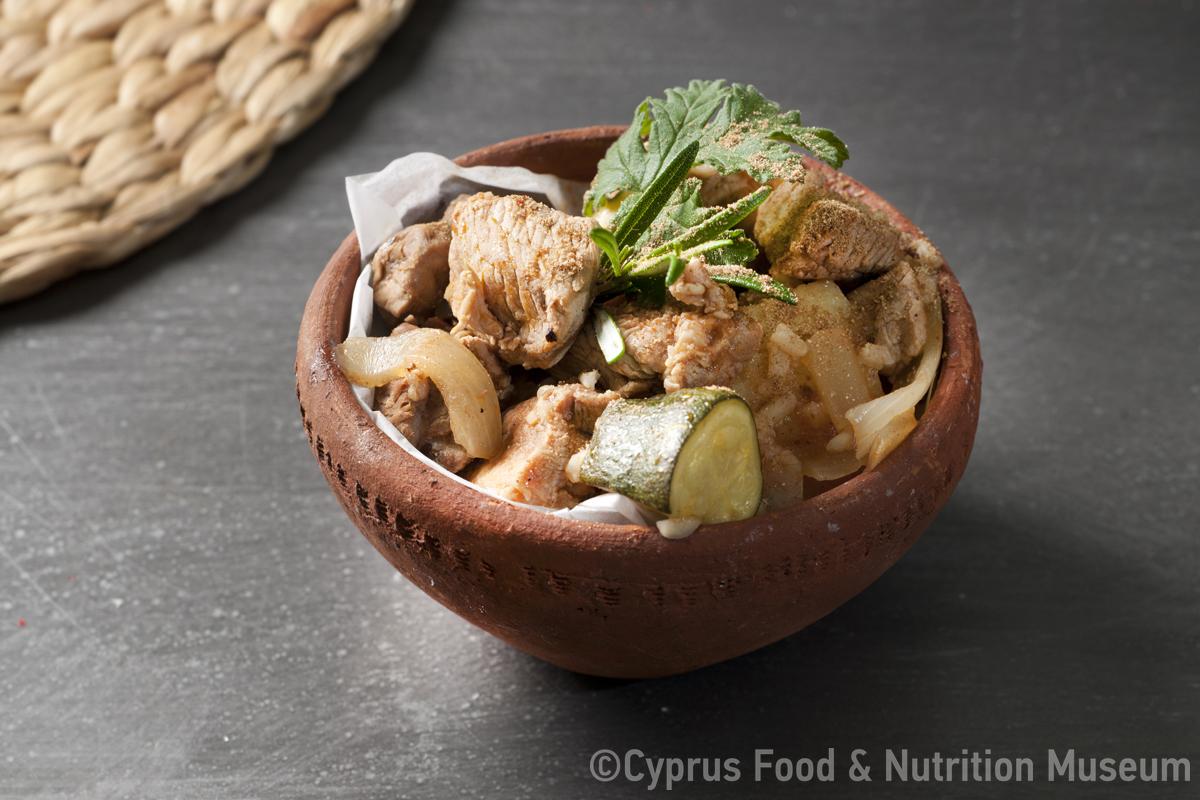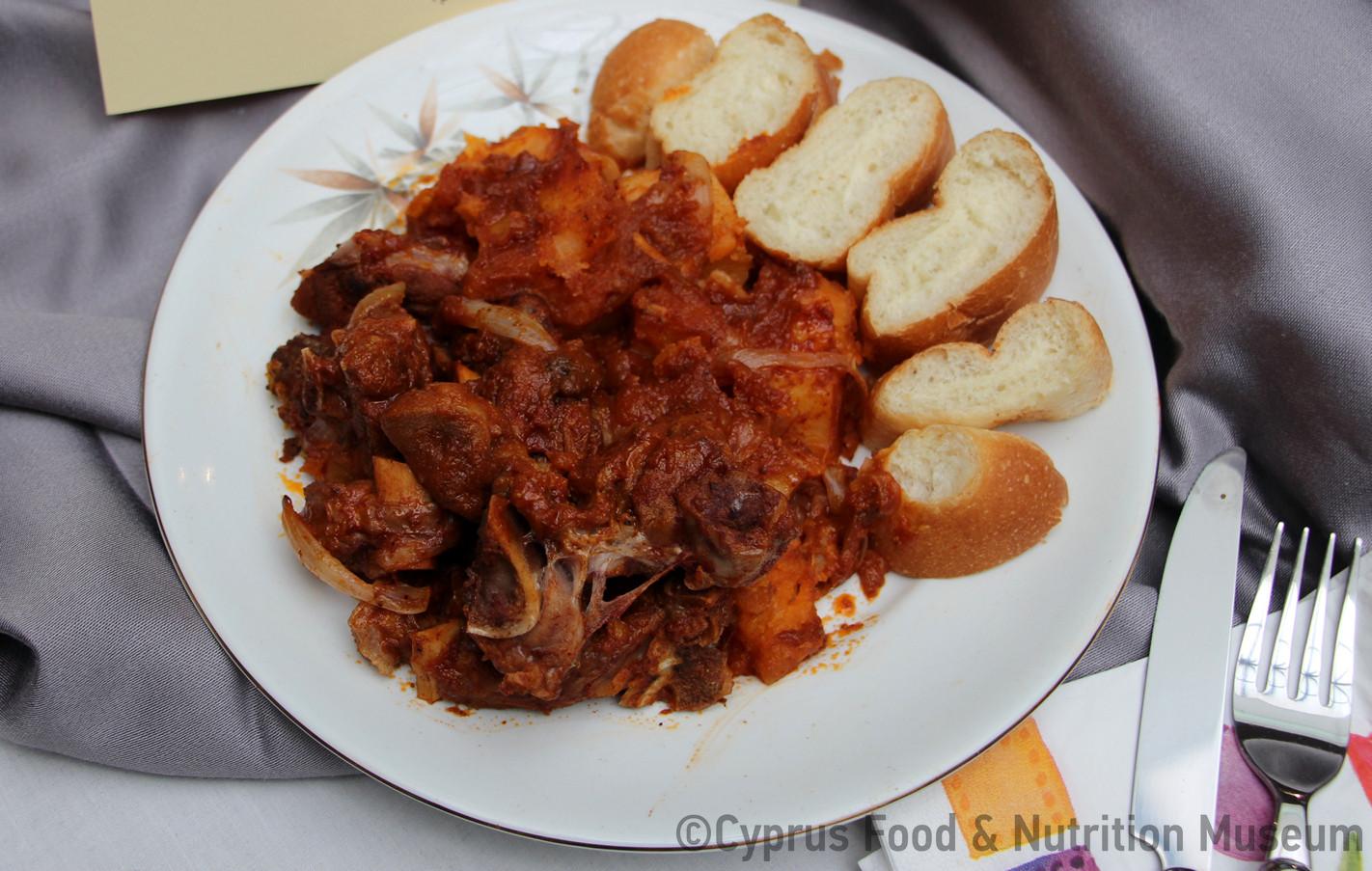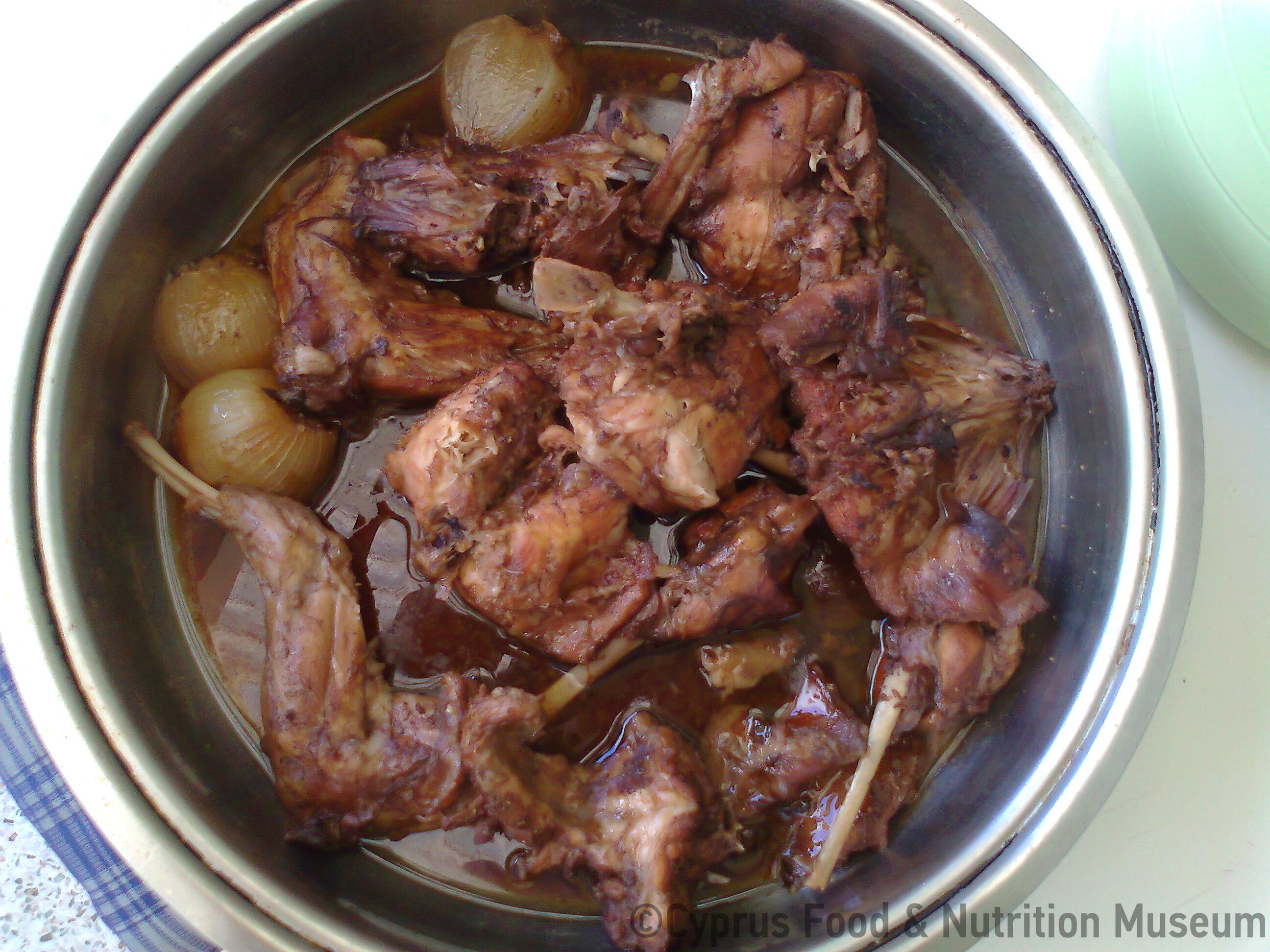A type of spice, very commonly used in traditional ttava and other dishes.
Name - Origin
Κύμινο. Cumin is the elongated, oval and brownish-yellow fruit of the homonymous aromatic plant, which, when dried, is widely used as a seasoning in cooking (Babiniotis 2005, article κύμινο,το, 972).
Scientific name: Cuminum cyminum (Kypri 1983 [2003²], entry αρτυσ̆ιά,η, 132)
Functional and symbolic role
Cumin is added to the traditional ttavas dish. Ground cumin was considered a necessary ingredient for the preparation of this dish. Seldom were other dishes seasoned with it (Kypri 1983 [2003²], entry αρτυσ̆ιά,η, 132).
A dish called 'lardin to patsalin', i.e. fat with meat, is also prepared using artyshia. The meat is marinated in wine with artyshia and coriander for 1-2 days and then dried in the air. It is served with bread (Petrou-Poeitou 2013, article Λαρτί το πατσαλί, 76).
Additional information and bibliography
Kypri Th. D. (ed.) (1983 [2003²]), Materials for the compilation of a historical dictionary of the Cypriot dialect, Part B, Glossary of Xenophon P. Pharmakides, Publications of the Centre for Scientific Research, IX, Nicosia.
Babiniotis G. (2005), Dictionary of Modern Greek Language. With comments on the correct use of words. Interpretative, Orthographic, Etymological, Synonyms, Main Names, Scientific Terms, Acronyms, Centre for Lexicology, Athens, Greece.
Petrou-Poeitou E. (2013), Where do they come from. Words and stories from the world of taste, Epiphaniou Publications, Nicosia.
Tonia Ioakim, Stalo Lazarou, Maria Tsangari / Petroula Hadjittofi, Argyro Xenophontos

